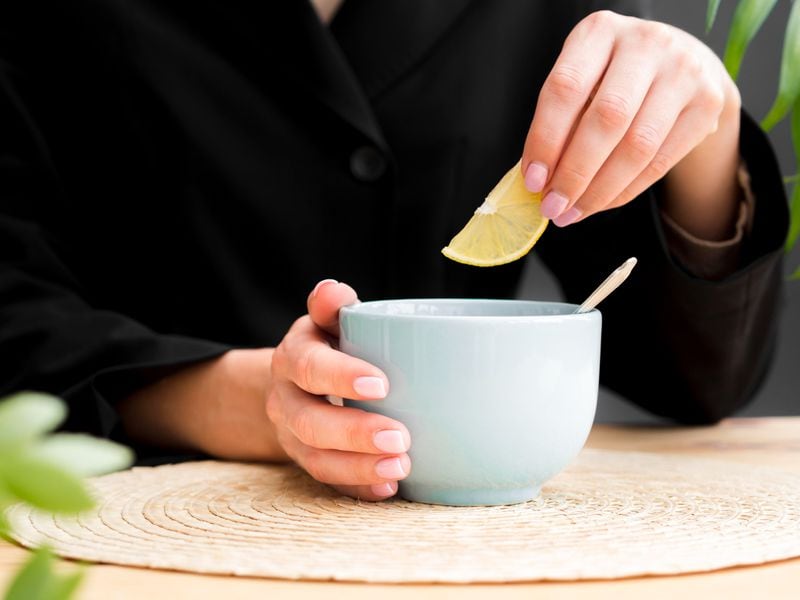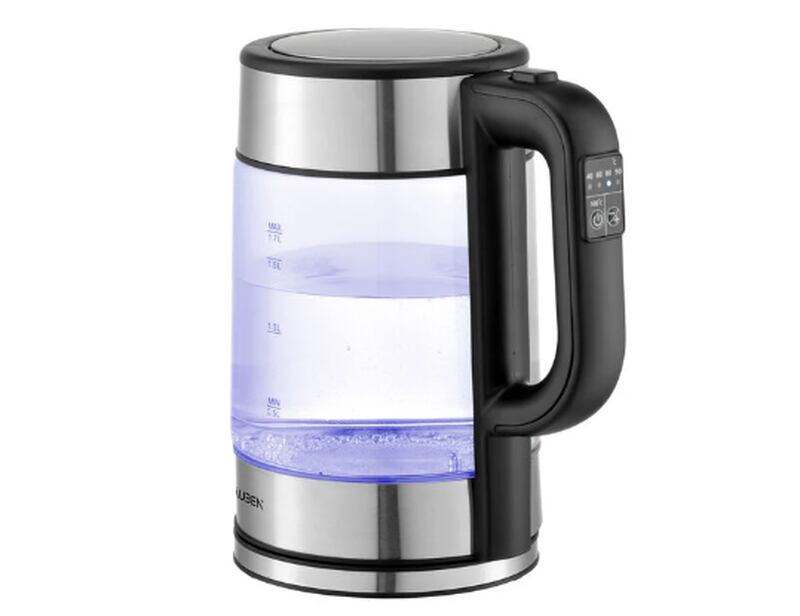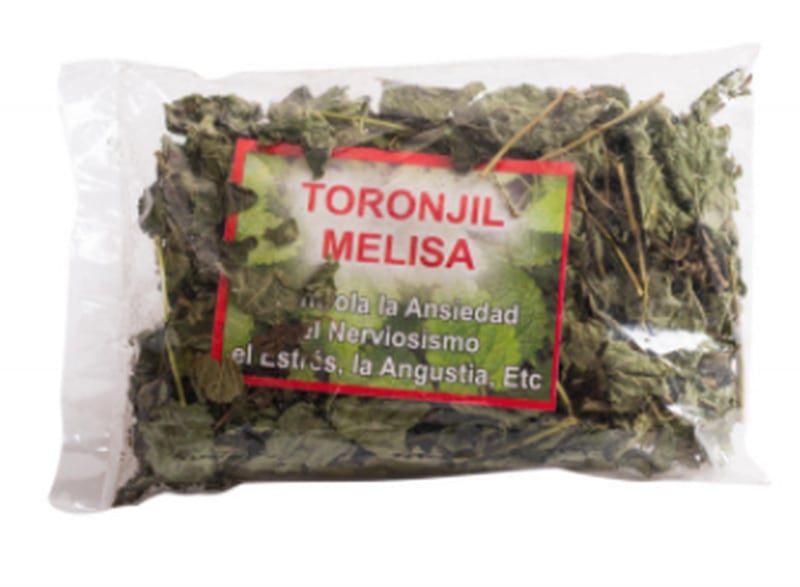The popular “agüitas” are comforting, help against the cold and, it is believed, also against certain ailments. Often, yes, their nutritional properties, side effects, and risks of drinking too much are unknown.
For many people, drinking an infusion —the famous agüita— is one of their favorite times of the day. Either because it’s part of an after-dinner conversation, or because it’s simply an intimate, thoughtful break. Either way, it’s almost always a rewarding time, especially in fall and winter, when looking for alternatives to combat the cold.
They are also used to relieve hearty lunches, to comfort the mood after a difficult day or to feel better after the appearance of various symptoms. However, and like everything, it is not a question of arriving and consuming them piecemeal: in addition to appreciating them, it is advisable to have some contextual information.
Drinking “aguitas,” says Maite Rodríguez, an academic at the School of Chemistry and Pharmacy at the U. Andrés Bello, “is supposed to be the consumption of pleasant aromatic herbs, prepared in the form of an infusion; i.e. leave the herbs in hot water for about 5 minutes”.

“These are considered food and their only function is that. In other words, we do not attribute therapeutic properties to them,” he assures us, alluding to the Sanitary Decree No. 977/96 Art. 459-464 . She also points out that the consumption of winter infusions “satisfies the need to drink a hot drink with a pleasant taste/smell”.
Paulina Mella, nutritionist at the Clínica Dávila Vespucio, sees no problem with them being freely consumed, “as long as you vary them a lot”, she suggests. On the contrary, they often help a lot in controlling anxiety and reducing stress. “Sometimes they are taken for pleasure, because they have a rich flavor, but there are several whose consumption must be limited, because in addition to taste, they have other properties.”
Let’s hope for infusions with little (or no) sugar
Recently, the World Health Organization (WHO) reported that sweeteners are not effective for long-term weight control and may cause side effects if used for a long time. Rodriguez and Mella agree that infusions should always be consumed without sugar. If a sweetener is used, add a few drops. “It may be more convenient to use honey to sweeten these infusions,” says Rodríguez, but the appeal is to consume them naturally, just with water.
They don’t count as water
Unfortunately, and according to specialists, the consumption of infusions, herbal teas or herbal waters are not part of the water rations your body needs. “Many of these infusions are diuretics, so instead of hydrating, they help dehydrate. Therefore, their consumption should parallel that of pure water. Both should be consumed,” says Mella. To hydrate , says Rodríguez, “it is best to drink natural water.” Infusions are considered separately.
Do not consume them indiscriminately (and beware of contraindications)
“Although these infusions do not correspond to a medicine, their exacerbated use can cause discomfort and adverse effects in some people, especially in special populations”, points out Rodríguez. For example, in young children it is contraindicated to drink an infusion of star anise, as it can cause convulsions.
“In people with hypertension, it is not recommended to consume drinks containing caffeine, such as mate,” he says. In the case of pregnant women and nursing mothers, it is recommended to take only linden infusions, and not other more common ones such as sage, boldo or rue —they have estrogenic properties— so it is very important to observe the contents of each sachet that will be used.
“I insist again: although these herbs are not considered medicines, the excessive use of these infusions – more than four cups a day – can generate undesirable effects on our organism”, he warns.
How to prepare an infusion
Almost everyone does the following: boil some water, pour it into a cup with the sachet of herbs, then leave it there forever. Serious mistake. In each case, you should always read the packaging, which usually details the suggested water temperature for drinking and brewing time.
“What I advise in general with all infusions is that they should not be drunk with freshly boiled water,” suggests Mella. “You can put boiling water in it, soak the infusion, wait for it to come down to a lukewarm temperature and then drink it. Or you can do it directly with lukewarm water, as we prepare mate, for example”.
If you want to get the exact temperature that is recommended in the box, you can take the help of a thermometer or there are even kettles that include it in their control panel.
Kettle with temperature control Klauben HKTG-KL1732 1.7 liters

Always vary and do not abuse
According to Mella, the ideal way to consume the infusions is to vary them: in this way very high daily doses or contraindications are expressed. “If we have an illness or want to fall asleep more easily, certain herbs can help. For example, lemon balm or lemon balm, which is used for relaxation and rest. But if we take it every day, or several times a day, the body gets used to them and becomes just another drink. For their benefits to work, they need to be varied.”
Rodríguez mentions that Sernac has researched the main infusions on the market, such as chamomile, boldo, lemon verbena or mint, and it has been verified that they meet the quality requirements . However, this does not mean that they can be used as remedies for acute symptoms or pictures of illness.
“There are plants that we use in infusion that have medicinal properties, and their consumption is deeply rooted in the population. Some people may even experience momentary benefits when using them, but they will never replace conventional or complementary therapy,” he says.

“There are not enough studies to support that herbal infusions can be used as medicine or that they have therapeutic effects,” Rodríguez warns. “There are a small number of investigations that explore the clinical effectiveness and safety of consuming these preparations. The nutritional value should also be further studied, as the consumption of herbal teas could decrease the absorption of certain drugs and minerals or vitamins”.
According a meta-study from 2019, in which 145 scientific publications were reviewed regarding the use of herbal infusions to treat certain conditions on an ongoing basis – such as menstrual discomfort, diabetes, heart problems and mood disorders . High-use herbs around the world were analyzed, such as chamomile, tea, lavender, nettle, mint and yerba mate, “and they found a relationship between continuous and indiscriminate use of many of these herbs and liver disease or the risk of cancer, and the improper cultivation and collection of these plants can lead to the consumption of environmental pollutants,” explains the academic.
Water with lemon, honey and ginger: is it good for the flu?
A cup of hot water with a tablespoon of honey, a few drops of lemon and a little ginger is the infusion that most people turn to when they have flu symptoms. The million dollar question is: does it help or is it just a placebo effect?
“It is an infusion very consumed during the cold months, which serves us mainly to hydrate us. Likewise, each of its ingredients has characteristics and contributions, ”explains Carmen Gloria Durán, nutritionist at Clínica Dávila. These are :
- Lemon provides vitamin C, antioxidants and is a powerful bactericide, so its regular consumption is recommended.
- Honey is a natural sweetener that is used as an anti-inflammatory, antioxidant, and antibiotic agent. Of course, it should be consumed in moderation due to its high content of free sugars.
- Ginger is a good seasoning and flavoring when cooking. Antimicrobial properties are conferred on it, since it would inhibit the action of infectious microorganisms. It is also anti-inflammatory, aids the digestive system, speeds up metabolism and has a supply of minerals such as selenium, potassium and iron from plant sources.

“According to these characteristics, the combination of these foods would help us improve our immune system,” he says. However, it is not an infusion that will magically cure a cold or discomfort. “It is important to take into account that there is no scientific proof that lemon with ginger and honey reduces infectious conditions or that it reduces symptoms”, adds Yanina Hernandez, academic at the School of Nutrition and Dietetics from the U. Andres Bello.
“It may help relieve cold symptoms or nasal congestion,” he says, but it’s not a cure by itself. Consuming it frequently – once or twice a day – could, yes, stimulate our defenses. The general suggestion, as always, is that in case of infectious disease, fever, persistent or severe congestion, seek medical attention for proper diagnosis and proper treatment.
*Prices for products in this item are current as of June 1, 2023. Values and availability are subject to change.
Source: Latercera
I am Robert Harris and I specialize in news media. My experience has been focused on sports journalism, particularly within the Rugby sector. I have written for various news websites in the past and currently work as an author for Athletistic, covering all things related to Rugby news.


